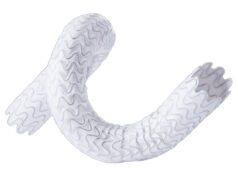 Invizius, a biotechnology company developing second generation therapies for a range of complement-driven autoimmune and inflammatory disorders, has announced that it has recruited its 300th patient to its ‘angry blood’ study, CompAct-HD. This, it says, is a “significant milestone” in its “novel kinetic study” to identify patients with elevated complement responses during haemodialysis, what it calls ‘angry blood’, who may have a high risk of serious cardiovascular complications, an Invizius press release notes.
Invizius, a biotechnology company developing second generation therapies for a range of complement-driven autoimmune and inflammatory disorders, has announced that it has recruited its 300th patient to its ‘angry blood’ study, CompAct-HD. This, it says, is a “significant milestone” in its “novel kinetic study” to identify patients with elevated complement responses during haemodialysis, what it calls ‘angry blood’, who may have a high risk of serious cardiovascular complications, an Invizius press release notes.
That release goes on to state that angry blood occurs in ±20% of patients undergoing haemodialysis, making them more susceptible to heart disease, risk of stroke, damage to blood vessels and a very poor patient prognosis. During haemodialysis, blood interacts with the biomaterials of the haemodialysis circuit. This interaction activates the complement system, which plays a key role in the innate immune response but, when dysregulated, contributes to the development of numerous diseases, the release adds.
Speaking exclusively to Renal Interventions, Invizius CEO Richard Boyd said: “We think this is the largest, most comprehensive study ever of how patients’ immune responses to the haemodialysis procedure vary, and what that means for their cardiovascular health and outcomes generally. Recent research* links high levels of immune activation during dialysis [angry blood] to significantly higher cardiovascular event risk.
“This study builds on that finding and seeks to verify the link between the origin of the immune response (activation of the complement system on the surfaces of the extracorporeal circuit) and the acute/chronic inflammation that is the harbinger or driver of so many life-limiting conditions suffered by patients. By linking this to outcomes, the study could provide the justification for intervention in the subset of patients with angry blood.”
The 525-patient study aims to assess ‘complement activation’ during haemodialysis in patients with end-stage kidney disease (ESKD), and its link to the patient’s risk of serious complications during dialysis. Dialysis patients from collaborating centres across the northwest of the UK at the Royal Preston Hospital, Salford Royal NHS Foundation Trust and Liverpool Royal Infirmary will be participating in the ongoing evaluation study. This, the company states, will enable Invizius to stratify the patient population in preparation for the upcoming first-in-human clinical study of its H-Guard priming solution.
Subject to approvals by the Medicines and Healthcare products Regulatory Agency (MHRA) and Ethics, the first-in-human study of H-Guard will commence in the middle of 2023. The study will be led by Sandip Mitra and coinvestigators Duha Ilyas and Leonard Ebah (all Manchester Royal Infirmary, Manchester, UK) at the Manchester University Hospitals NHS Foundation Trust (MFT).
H-Guard priming solution, the press release details, is a “highly potent second generation complement regulator” which coats the dialysis filter and tubing during the priming process. This is designed to suppress complement activation on the extracorporeal circuit’s surfaces by “recruiting and enhancing the patient’s own, natural complement modulator, Factor H, whilst still allowing effective infection control”.











